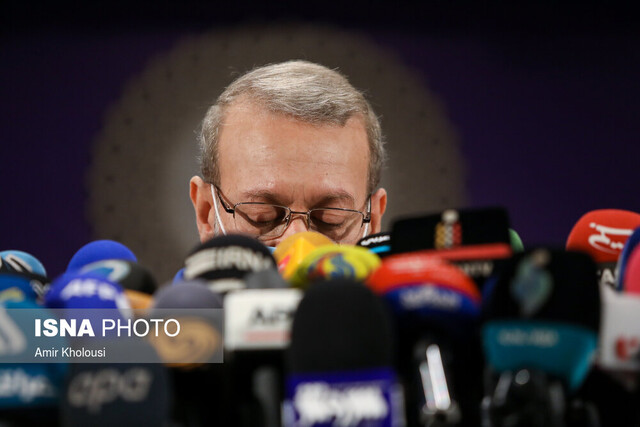Some relatives of Ali Larijani, the “executor of the 25-year Iran-China agreement”, announced his resignation from the post several months after Seyed Ibrahim Ra’isi was elected as the head of the 13th government. Decisions were made.
According to ISNA, for the first time with the visit of the President of the People’s Republic of China Xi Jinping to Iran in 2015, talks were held for a 25-year contract between the two countries in Private circles arose, but four years later no one spoke of the agreement, nor did the media publish any new news about it. And perhaps this was one of the reasons for the cross-sectional transfer of the contract file from the table of the two countries to the document storage drawer, although some theoretical experts argue otherwise.
Since 2009, with the withdrawal of the United States from the UN Security Council and the imposition of various sanctions against Iran, attention has turned to this unfinished agreement, and the treaty between the two countries was discussed again, leading to the exchange of several draft texts. It was from here that the name of Ali Larijani first came to the attention of observers about this agreement; In August 2009, when he was speaker of the Islamic Consultative Assembly, he announced that Iran had drawn up a 25-year cooperation plan with China. The then President Hassan Rouhani also reviewed and approved the final draft of the 25-year comprehensive cooperation plan between the two countries on July 22, 2016 at a cabinet meeting. At that meeting, the State Department was instructed to sign the program during the final negotiations with the Chinese side, based on long-term mutual interests. Eight months later, on April 27, 1400, the document was signed by Mohammad Javad Zarif and Wang Yi, the foreign ministers of Iran and China.
With the official announcement of the signing of this agreement, criticism and support for its more or less announced provisions increased; Some argued that Article 77 of the Constitution had been violated and that the agreement was similar to the Qajar treaties, while others defended it, emphasizing that at the current stage of the agreement a strategic framework for cooperation had been developed and did not include the figures in question. And these cases will be developed in the form of specific contracts in the future.
Apart from criticizing the content and provisions of the agreement, another reason for the media and political currents to pay attention to the agreement was the appointment of Ali Larijani as “executor” by the Islamic Republic. Perhaps one of the first reactions to this issue was made by Gholamreza Mesbahi-Moghaddam, a member of the Expediency Council, who said in an interview that this cooperation document was formed before the sanctions and when the leadership of the revolution sent a special message to China to The Chinese president should hold talks, and before that, there was no determination in the Rouhani administration’s behavior for relations with Russia and China. Following Mesbahi Moghaddam’s speech, Majid Reza Hariri, President of the Iran-China Chamber of Commerce, spoke behind the scenes of a television program about how the signing of this cooperation document progressed and emphasized that Ali Larijani had gone to China on the orders of the revolutionary leadership.
From then until the beginning of the 1400 elections, a group of analysts had come to believe that due to Larijani’s role in the signing of the cooperation document between Iran and China, as well as the system’s trust in him to advance it, if he attends Elections 1400 could be one of the possible options for the presidency. Larijani registered to run in the election, but the results of his review of his credentials in the Guardian Council may not have been credible for him and his brother Sadegh Amoli Larijani and a number of other analysts, and his credentials were not confirmed by the Guardian Council.
Larijani then became more concerned with “not being invited”, “remaining silent” and “not being seen” and in a word “not being” rather than commenting or appearing in public. The leadership bit was seen. After that, Ali Larijani waited to send a message of condolence if someone died or to share in the joy of others. Now, almost three months later, it is reported that as soon as Seyed Ibrahim Raisi was elected and the 13th government was formed, he resigned from “executing” a 25-year contract with China. Explaining the move, Larijani said he called for “the new government to be open-minded and for decisions to be centralized and coordinated.”
The former speaker of parliament and several other institutions and organizations have now come to the conclusion that in fulfilling the agreement with China, he should be content with the “former” adjective and remember his connection with the past and hand over the work to new forces. From now on, in addition to selecting a new executor of the 25-year contract, we will have to wait for new news from the government on the progress of the 25-year contract. Instead of reviewing “new news” about Larijani and his actions, the media will gradually turn to “broadcasting unpublished images” of him or expressing memories of his relatives during and before the parliament.
End of message

دیدگاهتان را بنویسید